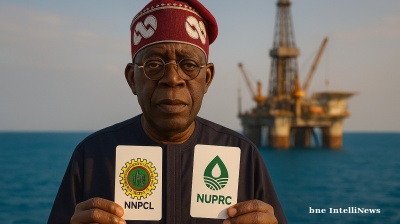In a first statement after the Constitutional Court ruled that the presidency must dismiss anti-corruption head Laura Codruta Kovesi, Romania’s President Klaus Iohannis commented on prosecutors’ independence, indicating that his conflict with the government might intensify.
The court issued the ruling after the ministry of justice requested Kovesi’s dismissal. Iohannis did not indicate whether he is ready to dismiss Kovesi. However, he stressed he would defend the independence of prosecutors, who “cannot be under the supervision of a politician, not even under the supervision of the ministry of justice”.
“Personally, I am convinced and I will behave consequently, that the prosecutors must be independent,” the president added.
“I consider observing the rule of law, strengthening it and making sure that the prosecutors stay independent,” Iohannis answered a direct question on this topic. He commented that the authority of the justice ministry over prosecutors, as set out in the Constitution, should be interpreted in the sense that the government should use its power to secure prosecutors’ independence.
Iohannis has to make a difficult decision: either validate the authority given by the Constitutional Court to the government over prosecutors, or enter direct conflict with the Constitutional Court.
Under the baseline scenario, he will choose a third option: make no formal decision and wait for the ruling coalition to move first, most likely by suspending him from his post and thus igniting a broad political confrontation in the context of the upcoming presidential elections. Politically, both the president and the ruling coalition might expect dividends from such a scenario. But economically, this would be highly costly.
On the same note of rising conflict, the Constitutional Court confirmed it has notified the Venice Commission over the political pressure exerted by “some public authorities and political parties” after its decision in the Kovesi case. Indeed, the head of the largest opposition party National Liberal Party Ludovic Orban and other opposition leaders recommended that Iohannis not follow Constitutional Court’s decision and refuse to dismiss Kovesi. The court strengthened, in his June 5 statement, its stance that its decisions are mandatory including for the president. But beyond this, the court cannot to enforce the dismissal.
The Court’s decision in the Kovesi case highlights the ambiguity of the legislation that allowed the members of the court to greatly increase the authority of the ministry of justice over the head prosecutors, by picking up a certain interpretation out of the possible readings of the texts of the law. The court “has in fact extended the authority of the justice ministry over the president”, former president Traian Basescu commented on the situation. Indeed, under the court’s interpretation, the president is not part of the decision making process for the dismissal of head prosecutors, and his role is unclear.
But elaborate constitutional debates are not possible in the current political situation. Rather, the ruling coalition is expected to make use of the ambiguity and continue efforts to weaken the rule of law with the sole purpose of protecting its leaders involved in corruption cases.
News
_1758059076.jpg)
Trump brands Colombia a narcotics pariah as cocaine production hits record highs
Colombia has been branded a narcotics pariah by the Trump administration, receiving its first "failing to cooperate" designation since 1997 as record cocaine production and deteriorating US-Colombia relations reach a breaking point.

Fuel prices in Kyrgyzstan rocket as Ukraine steps up drone strikes on Russian refineries
Central Asian country relies on Russia for nine-tenths of its fuel.

El Salvador leads Latin America's democratic decline, global watchdog warns
The latest IDEA report warns El Salvador faces the fastest democratic erosion in Latin America, with security policies under Bukele raising concerns over freedoms, judicial independence, and long-term institutional damage.

Nigerian president advances oil bill placing NNPCL under control of Finance Ministry, upstream regulator
President Bola Tinubu has endorsed a bill that would undermine the "independence" of NNPCL, shifting ownership to the Finance Ministry and handing new powers to upstream regulator NUPRC.




